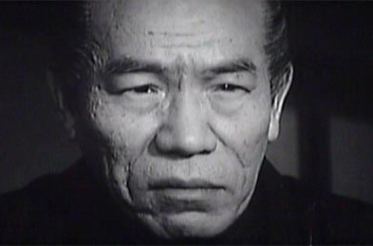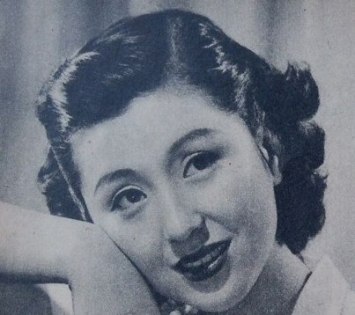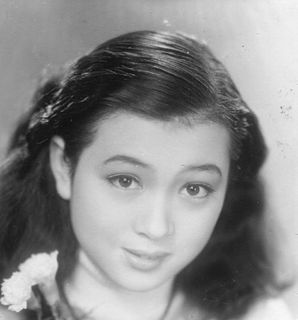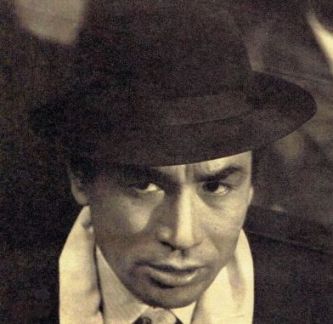Physical Address
304 North Cardinal St.
Dorchester Center, MA 02124

Alternate title: Twilight Beer Hall (literal English title)
| Production Company | Shintoho1 |
| Scenarist | Nada Senzo2 |
| Producer | Sakaeda Seiichiro |
| Cinematographer | Nishigaki Rokurō |
| Art Director | Itō Toshikazu |
| Music | Akutagawa Yasushi |
| Editing | Kasama Hideo |
| Performers | Kosugi Isamu (Umeda Moichirō, a painter); Miyahara Takuya (Kenichi, a singer); Ono Hiroshi (Eto Kinya, Kenichi’s teacher); Tsushima Keiko (Emy Rosa, a striptease dancer); Tatara Jun (Tetsuo, Umeda’s friend); Nozoe Hitomi (Yuki, a young barmaid); Arima Korema (Taniguchi, the bar manager); Tōno Eijirō (Onizuka, a former military officer); Katō Daisuke (Kibe, a former soldier, Onizuka’s subordinate); Tanba Tetsurō (Morimoto, a yakuza and rival of Masumi); Utsui Ken (Masumi, Yuki’s boyfriend); Takada Minoru (Nakakoji, an impresario); Nakamura Akira (Taga, Emy Rosa’s former patron); Egawa Ureo (Yamaguchi, Umeda’s friend, a journalist) |
| Status | Extant |
| Photography | Black and White |
| Format | 35 mm. |
| Ratio | 1.37:1 |
| English Subtitles | Yes3 |
| Original Release Date | June 19, 1955 |
| Length | 94 mins. |
| Awards and Festival / Retrospective Screenings | Mainichi Film Concours (Best Art Direction); Tokyo FILMeX Retrospective (2004); MIFF (Melbourne, Australia) Retrospective (2005); Japan Society “Japan Sings” series, 2016; MOMA Retrospective, 2016 |
(Note: This post has been updated on 10/25/21 after my viewing of a copy of the film with new English subtitles. It has been updated again on 10/2/24 based on information I received about the film’s screenwriter.)
In Tokyo in the late afternoon, inside a closed beer hall, a middle-age bohemian painter, Umeda, arrives and takes his usual seat at the bar while listening to a young singer, Kenichi, practicing an art song under the strict tutelage of his teacher, Eto Kinya. Barmaids arrive and begin to set up the bar and tables, while one of them, Yuki, who will later perform as part of the evening’s entertainment, gets onstage and rehearses, accompanied on accordion by Kenichi, the Stephen Foster song “Beautiful Dreamer” (with Japanese lyrics). The beer hall opens to customers and Umeda’s alcoholic friend Tetsuo enters and greets him.
Among the first customers to arrive is Onizuka, a former military officer, now a down-on-his-luck estate agent. Kibe, a former soldier who is sitting at a nearby table, recognizes Onizuka, who was once known as “the demon,” as his superior officer during the war, and he is invited by Onizuka to share a drink with him. The two men, who are militarists, are very displeased by the non-Japanese music playing from the onstage record player and by the left-wing students drinking and singing nearby. At one point, Kibe and Onizuka hear singing from the street outside the bar and, assuming that it is a patriotic war song, happily join in, only to discover to their embarrassment that the people in the street are really singing a Leftist anthem.
A young yakuza, Morimoto, enters with his gang. He calls the young barmaid Yuki to his table. Apparently, Morimoto had once claimed Yuki for his own girl, and he frightens her by telling her they are looking for another yakuza: Masumi, Yuki’s current boyfriend. While she is singing the Japanese folk song “Sakura” onstage, Masumi enters and faces down the gang by stabbing Morimoto’s hand with a fork and forcing him to hand over some money. Masumi leaves a message for Yuki with Umeda that he will soon be departing for Osaka and expects her to meet him at the train station. He exits the beer hall with Morimoto and his gang in hot pursuit.
Yuki, having finished her performance, receives the message from Umeda that Masumi is about to leave for Osaka. She tries to run after him, but at the front entrance she finds instead her very young sister, who has come with the news that their mother is very ill.
Yuki has no money to help her mother, and she asks for an advance on her salary from the bar manager, Taniguchi, but he is reluctant. Umeda arranges with Taniguchi to give Yuki an advance on her wages so she can take care of her mother, and promises to make good on the loan out of his own resources. Meanwhile, when Kibe walks away from Onizuka’s table for a few moments, the latter surreptitiously pays his own bar bill and sneaks out of the hall, leaving Kibe’s bill unpaid. Kibe returns to the table and, confused, runs down the stairs after Onizuka.
The star of the evening’s entertainment, the dancer Emy Rosa, arrives and greets her fans. She is a former ballet dancer who performs a nightly striptease show to survive. She goes backstage where she greets her friend Kenichi. Kenichi says that he is embarrassed for her as he trains the spotlight on her body every night, because he considers her stage act a travesty of her talents. Emy Rosa is at first taken aback by his confession, but then expresses appreciation that someone cares enough for her to feel shame for what she has to do.
Nakakoji, an opera impresario, arrives to observe the show. Before the war, this man had been Eto’s protégé, but had started his own rival company and had even slept with Eto’s wife. The jealous Eto had then physically attacked his wife, ending his own musical career.
Kenichi takes the stage and, at a request from Umeda and Tetsuo, sings the famous “Toreador Song” from Bizet’s opera, Carmen. As he does so, Umeda and Tetsuo entertain the customers with an impromptu routine in which Umeda plays a matador and Tetsuo portrays a charging bull. After the performance, Nakakoji summons Kenichi to discuss a possible position at his opera company with him. The young singer is ambivalent, desiring the opportunity but not wanting to leave behind his beloved teacher. Eto from the stage spots and recognizes Nakakoji as his former protege, but Nakakoji doesn’t recognize him. Yamaguchi, an old journalist friend of Umeda’s, arrives and the latter greets him warmly.
Kenichi goes backstage and relates the news of the opera offer to Emy Rosa and Eto. She is thrilled, but Eto is depressed. He says that he would gladly let Kenichi work for anybody else but not Nakakoji, without explaining why. She berates Eto for not thinking of the good of his pupil.
Emy Rosa, wearing a mask, begins her dance routine, moving from table to table throughout the hall, exciting the male customers, although she removes none of her clothes and exposes only her legs. Meanwhile, Umeda, who had once served the war effort by making Fascist paintings, shares with Yamaguchi his feelings of guilt at this contribution to a war he now despises, and his need to atone for the fact that many who had viewed and admired his “patriotic” art have since died in battle.
As Emy Rosa removes her mask (the only article of clothing she takes off), she notices her former patron, Taga, sitting at a table in the corner, a look of disgust on his face, and is afraid. He chases her with a knife, but the audience laughs, assuming this is all part of the act. Taga slashes her upper arm before Kenichi and several other men subdue him, to the audience’s shock. The police are called in and Taga is arrested while Emy Rosa is brought in for questioning.
Umeda decides to paint Yamaguchi’s portrait on the back of a poster that had been hanging above the bar, so that Yamaguchi can pay him 3000 yen. Umeda can then reimburse the manager, Taniguchi, for having loaned that amount to Yuki.
The closing bell rings and the barmaids begin to close up the tavern for the night. The patrons leave one by one, and the barmaids then depart for home, while Tetsuo passes out from drunkenness. Umeda has a long talk with Eto in the nearly empty bar to persuade him to let his protégé go. Kenichi then tells his mentor that he has decided, out of deference to him, not to join Nakakoji’s company, but Eto insists that he do so and think about his own career, not what he, Eto, wants. Kenichi sings onstage to the nearly empty tavern while his teacher accompanies him on piano one last time.
Meanwhile, Yuki returns to the bar and Umeda asks her if she had somehow missed Masumi at the train station. She tells him that she in fact met with Masumi, but decided not to go to Osaka with him because her sister and mother need her more than she needs Masumi. She and Umeda exit together as Kenichi finishes his song. Tomorrow, Kenichi will join Nakakoji’s opera company.

Tōno Eijirō was an extremely prolific character actor, who did excellent work for just about every director of note during Japan’s Golden Age of the 1950s and early-to-mid 1960s. He holds the unique distinction of being the only person who worked on both of the two most acclaimed Japanese films: Ozu’s Tokyo Story (Tokyo Monogatari, 1953), in which he played a disreputable salaryman, and Kurosawa’s Seven Samurai (Shichinin no Samurai, 1954), portraying a terrified kidnapper. He started out in left-wing theater in the 1930s and played the peasant Kanji in a stage adaptation of Nagatsuka Takashi’s novel Tsuchi (The Soil), though he wasn’t cast in Uchida’s 1939 film version. After making his movie debut in 1936, he amassed over 250 film and TV credits over six decades. For Uchida, he would later appear in Dotanba (1957) Chikamatsu’s Love in Osaka (1959), The Master Spearman (1960) and the fourth installment (1964) of the five-part Miyamoto Musashi series. In old age he became a very popular television actor, and he continued working right up to his death in 1994 at the age of 86.

Tsushima Keiko was an actress who had a long career extending into the 21st Century. She made her debut in her early twenties in the 1947 Yoshimura Kōzaburō’s classic A Ball at the Anjo House (Anjō-ke no butōkai). She worked over the years with many prominent directors, though she’s best known for her performance as Shino, the farmer’s daughter, in Kurosawa’s Seven Samurai. She died in 2012 at age 86.

Nozoe Hitomi was a popular actress active in the 1950s and 1960s. After making a memorable debut as a dying teenager in Kobayashi Masaki’s second film, Sincerity (Magokoro, 1953), she became particularly well known for her roles in several works by Masumura Yasuzō. She played an innocent girl in his groundbreaking erotic film Kisses (Kuchizuke, 1957), and a pop culture icon with serious dental issues in his classic satire Giants and Toys (Kyojin to gangu, 1958). She’s perhaps best known in the West for her small role as a barber in Ozu’s Floating Weeds (Ukigusa, 1959). Decades after her retirement, she died of thyroid cancer in 1995 at the age of 58.

Tanba Tetsurō (surname often spelled “Tamba”) was a prolific character actor. Born into an aristocratic family, he specialized, in many of his over 300 movies, at playing villains, most memorably in Kobayashi’s masterpiece, Harakiri (Seppuku, 1962). For Western audiences, his best-known performance was his featured role in the James Bond film You Only Live Twice (Lewis Gilbert, 1967). In later years, he became a spiritual leader and teacher. He died in 2006.
Trivia note: This movie was a reunion of sorts for five members of the cast of Seven Samurai: Katō Daisuke (who had played the samurai Shichiroji), Tsushima Keiko, Tōno Eijirō, Tatara Jun and Utsui Ken had all appeared in Kurosawa’s film (for Toho) the previous year.
(Continued on Page 2)
[…] Twilight Saloon (Tasogare Sakaba; たそがれ酒場), 1955 […]
[…] the Japanese musical at New York’s Japan Society, another Uchida movie filmed a decade earlier, Twilight Saloon (Tasogare sakaba, 1955). This film painted a satirical yet sympathetic portrait of the denizens of […]
[…] continuing his acting career. His final performance for Uchida was as the bohemian artist Umeda in Twilight Saloon […]
[…] (Keisatsukan, 警察官), 1933A Bloody Spear at Mount Fuji (Chiyari Fuji; 血槍富士), 1955Twilight Saloon (Tasogare Sakaba; たそがれ酒場), 1955Chikamatsu’s Love in Osaka (Naniwa no koi no monogatari; 浪花の恋の物語), […]